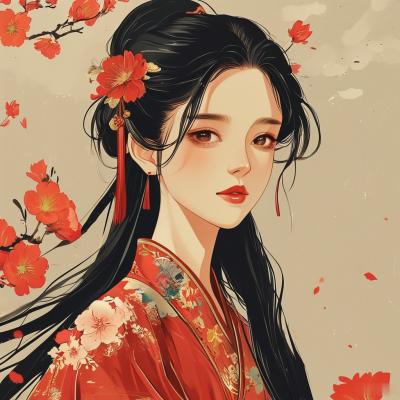农历2月宝宝出生吉日
农历2月宝宝出生吉日 农历2月,又称为二月,是中国传统农历中的一个重要月份,也是春季的开始。在这个月份里,有很多吉日适合宝宝出生...
扫一扫用手机浏览
September 1st is an Auspicious Day in the Chinese Calendar

Chinese culture is rich in traditions and beliefs, and one of the most important aspects of this culture is the Chinese calendar. The Chinese calendar is based on lunar cycles and has been used for thousands of years to determine auspicious dates for various activities, such as weddings, business ventures, and even daily activities. September 1st, also known as the first day of the ninth month in the Chinese calendar, is considered a particularly auspicious day, known as "Huangdao Jiri" in Chinese. Let's explore the significance of this day and how it is celebrated.
The Significance of September 1st
In Chinese culture, the number nine is considered extremely lucky as it sounds similar to the word for "long-lasting" or "eternal" in Chinese. As a result, the first day of the ninth month is believed to bring good luck, prosperity, and longevity to those who celebrate it. It is believed that any activities carried out on this day will be blessed with success and good fortune.
Moreover, September 1st is also associated with the harvest season in China. It marks the beginning of autumn, a time when farmers start to reap the fruits of their labor. This connection to the harvest season adds another layer of significance to this auspicious day.

Celebrations and Customs
To celebrate September 1st as a Huangdao Jiri, people in China engage in various customs and activities. One popular tradition is to offer sacrifices to ancestors and deities. Families gather together to prepare a special meal and set up an altar with offerings of food, incense, and other items. They pray for blessings and express gratitude for the abundance of the harvest season.
Another common custom is to visit temples and make wishes for good fortune. People flock to temples and burn incense as a way to show their respect and seek blessings from the gods. Many also take this opportunity to make donations to the temple or participate in charitable activities as a way to accumulate positive karma.
Additionally, September 1st is a time for family gatherings. Relatives from near and far come together to enjoy a festive meal and exchange well wishes. It is a time for bonding and strengthening family ties, as well as for passing down traditions and cultural values to younger generations.
Modern Interpretation
While the significance of September 1st remains deeply rooted in traditional beliefs, its celebration has evolved over time. In modern society, people still hold on to the auspiciousness of this day, but the customs and activities may vary. Some individuals may choose to engage in traditional rituals, while others may simply take the day off work to spend time with family and relax.
Moreover, with the advancement of technology and globalization, the influence of Western culture has also seeped into Chinese society. As a result, some people may choose to celebrate September 1st by engaging in activities that are popular in Western culture, such as going out for a meal or watching a movie.
In Conclusion
September 1st, known as Huangdao Jiri in Chinese, holds great significance in Chinese culture. It is a day filled with auspiciousness, blessings, and celebrations. Whether through traditional customs or modern interpretations, people in China come together to honor this special day and seek good fortune for the year ahead. It is a reminder of the deep-rooted traditions and beliefs that continue to shape Chinese culture and society.
So, next time September 1st rolls around, remember to embrace the auspiciousness of the day and celebrate in your own unique way!